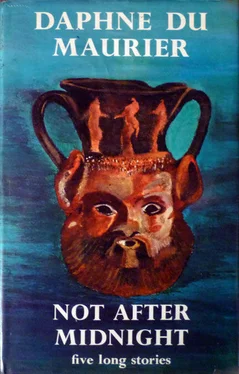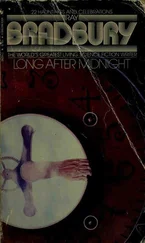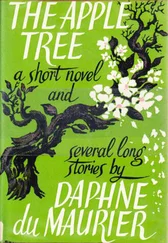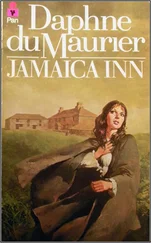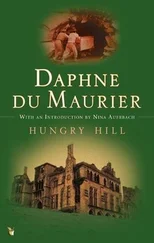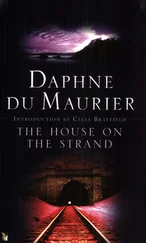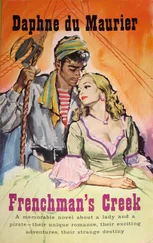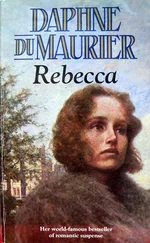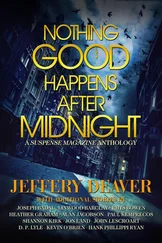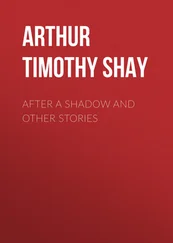I stared. I was not surprised at the other fellow refusing to cooperate, but I did not see where ethics came into it.
'He was a Catholic,' explained MacLean. 'Believing as he did in the survival of the soul and its sojourn in purgatory, he couldn't stomach any idea of imprisoning the life force and making it work for us here on earth. Which, as I have told you, is my intention.'
He turned away from the sea and began walking back the way we had come. The lights were all extinguished in the low line of pre-fabs where presumably we were to eat, work, sleep, and have our being during the eight weeks that lay ahead. Behind them loomed the square tower of the disused radar station, a monument to the ingenuity of man.
'They told me at A.E.L. you had no religious scruples,' went on MacLean. 'Neither have the rest of us at Saxmere, though we like to think of ourselves as dedicated men. As young Ken puts it himself, it comes to the same thing as giving your eyes to a hospital, or your kidneys to cold storage. The problem is ours, not his.'
I had a sudden recollection of the youngster at the bar, pouring out the orange juice and calling himself a guinea-pig.
'What's Ken's part in all this, then?' I asked.
MacLean paused in his walk and looked straight at me.
'The boy has leukaemia,' he said. 'Robbie gives him three months at the outside. There'll be no pain. He has tremendous guts, and believes wholeheartedly in the experiment. It's very possible the attempt may fail. If it fails, we lose nothing-his life is forfeit anyway. If we succeed…' He broke off, catching his breath as though swept by a sudden deep emotion. 'If we succeed, you see what it will mean?' he said. 'We shall have the answer at last to the intolerable futility of death.'
When I awoke next morning to a brilliant day and looked from my bedroom window along the asphalt road to the disused radar tower, brooding like a sentinel over empty sheds and rusted metal towards the marsh beyond, I made my decision then and there to go.
I shaved, bathed, and went along to breakfast determined to be courteous to all, and to ask for five minutes alone with MacLean immediately afterwards. I would catch the first available train, and with luck be in London by one o'clock. If there was any unpleasantness with A.E.L. my chief would take the rap for it, not I.
The dining-room was empty except for Robbie, who was attacking an enormous plateful of soused herrings. I bade him a brief good day and helped myself to bacon. I looked round for a morning paper but there was none. Conversation would be forced upon me.
'Fine morning,' I observed.
He did not answer me immediately. He was engaged in dissecting his herring with the finesse of an expert. Then his falsetto voice came at me across the table.
'Are you proposing to back out?' he asked.
His question took me by surprise, and I disliked the note of derision.
'I'm an electronics engineer,' I answered, 'I'm not interested in psychical research.'
'No more were Lister's colleagues concerned with discovering antisepsis,' he rejoined. 'What fools they were made to look later.'
He forked a half-herring into his mouth and proceeded to chew it, watching me from behind his bi-focal specs.
'So you believe all this stuff about Force Six?' I said. 'Don't you?' he parried.
I pushed aside my plate in protest.
'Look here,' I said. 'I can accept this work MacLean has done on sound. He has found the answer to voice production which we failed to do at A.E.L. He has developed a system by which high-frequency waves can be picked up by animals, and also, it seems, by one idiot child. I give him full marks for the first, am doubtful about the potential value of the second, and as to his third project-capturing the life-force, or whatever he calls it, as it leaves the body-if anyone talked to the Ministry about that one, your boss would find himself inside.'
I resumed my bacon feeling I had put Robbie in his place. He finished his herrings, then started on the toast and marmalade. 'Ever watched anyone die?' he asked suddenly.
'As a matter of fact, no,' I answered.
'I'm a doctor, and it's part of my job,' he said, 'in hospitals, in homes, in refugee camps after the war. I suppose I've witnessed scores of deaths during my professional life. It's not a pleasant experience. Here at Saxmere it's become my business to stand by a very plucky, likeable lad, not only during his last hours, but during the few weeks that remain to him. I could do with some help.'
I got up and took my plate to the sideboard. Then I returned and helped myself to coffee.
'I'm sorry,' I said.
He pushed the toast-rack towards me but I shook my head. Breakfast is not my favourite meal, and this morning I lacked appetite. There was a sound of footsteps outside, on the asphalt, and a head looked in at the window. It was Ken.
'Hullo,' he said, with a grin, 'what a wonderful morning. If Mac doesn't need you in the control room I'll show you round. We could take a walk up to the coastguard cottages and over Saxmere cliff. Are you game?' He took my hesitation for assent. 'Splendid! It's no use asking Robbie. He'll spend the morning in the lab gloating over specimens of my blood.'
The head vanished, and I heard him call to Janus through the kitchen window alongside. Neither Robbie nor I spoke. The sound of munching toast became unbearable. I stood up.
'Where will. I find MacLean?' I asked.
'In the control room,' he answered, and went on eating.
It was best done at once. I went the way I had been shown the night before, through the swing door to the lab. Somehow the operating table under the centre light held more significance this morning, and I avoided looking at it. I went through the door at the far end, and saw MacLean standing by Charon 1. He beckoned me over.
'There's a slight fault in the processing unit,' he said. 'I noticed it last night. I'm sure you'll be able to fix it.'
This was the moment to express my regrets and tell him I had decided against joining his team and intended to return to London immediately. I did no such thing. Instead I crossed the floor to the computer and stood by while he explained the circuits. Professional pride, professional jealousy, if you will, coupled with intense curiosity to know why this particular apparatus was superior to the one we had built at A.E.L., proved too much for me.
'There are some overalls on the wall,' said MacLean. 'Put 'em on, and we'll fix the fault between us.'
From then onward I was lost, or perhaps it would be more correct to say that I was won. Not to his lunatic theories, not to any future experiment with life and death; I was conquered by the supreme beauty and efficiency of Charon 1 itself. Beauty may be an odd word to use where electronics are concerned. I did not find it so. Herein lay all my passion, all my feelings; from my boyhood I had been involved with the creation of these things. This was my life's work. I was not interested in the uses to which the machines I had helped to develop and perfect were ultimately put. My part was to see that they fulfilled the function for which they were designed. Until arriving at Saxmere I had had no other object, no other aim in life, but to do what I was fitted to do, and do it well.
Charon 1 awakened something else in me, an awareness of power. I had only to handle those controls to know that what I wanted now was to have detailed knowledge of all the working parts, and then be given charge of the whole lay-out. Nothing else mattered. But the end of that first morning I had not only located the fault, a minor one, but had set it right. MacLean had become Mac, the shortening of my name to Steve was something that no longer jarred, and the whole fantastic set-up had ceased to irritate or to dismay; I had become one of the team.
Читать дальше
